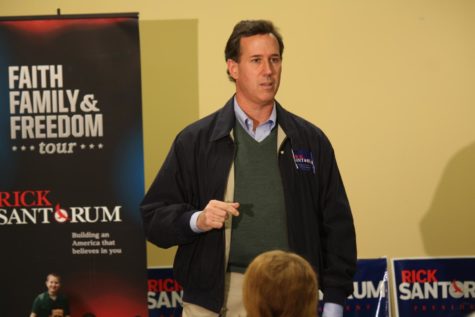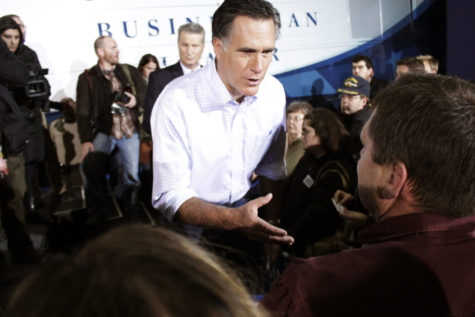ISU political experts say Iowa caucuses will affect rest of Republican race
January 10, 2012
Almost a week after the Iowa caucuses in which former Massachusetts Gov. Mitt Romney won by a close eight votes, the political eyes of the United States have turned their focus to New Hampshire for Tuesday’s first-in-the-nation Republican primary.
However, whatever the result is in New Hampshire, the Iowa caucus did play a hand in it, ISU professors say.
“In part, Iowa helped set the stage for New Hampshire,” said David Peterson, associate professor of political science. “[Michele] Bachmann dropped out and it really put [Rick] Santorum to the front.”
Despite the late surge in Iowa that put Santorum, a former Pennsylvania senator, in a virtual tie with Romney and caused the Minnesota congresswoman to drop out of the race, many still say they feel that Romney has a very good chance at winning in New Hampshire.
“No one has a chance against Romney in New Hampshire. He’s so far ahead and so well-known there,” Peterson said. “The big question is who is going to be second … is it going to be [Ron] Paul, Santorum, [Jon] Huntsman, [Newt] Gingrich?”
There can still be some political points to be gained by finishing second or third to Romney in New Hampshire. A high finish for any of the candidates will bring them to the forefront and help them challenge Romney in the important primaries in South Carolina and Florida following New Hampshire, said Steffen Schmidt, university professor of political science.
“Romney will win the New Hampshire primary, but it might be as embarrassing for him as Iowa was,” Schmidt said. “He will have to fight very hard to get beyond where he is now.”
Additionally, with tea party favorite Bachmann dropping out of the race after Iowa, some wonder what her withdrawal will mean, if anything, for the rest of the candidates.
“Bachmann supporters are basically nonexistent outside of Iowa,” Schmidt said. “Conservative voters will only now have to find Rick Santorum or Rick Perry.”
While stressing staunch conservative values might not be as important in winning the New Hampshire primary, strongly conservative South Carolina is a state where Republican presidential candidates feel they can make gains on Romney, who may have trouble winning the Southern state especially since it has a large portion of evangelical voters, Schmidt said.
“Romney does not look like he will win South Carolina, it is too conservative,” Schmidt said. “He is not going to fit in while Rick Perry and Rick Santorum could do very well … Because of this, Romney is going to be drawn into a long campaign, which will be more interesting than other years.”
Perhaps the most important role that Iowa played in the ensuing Republican presidential process is the fact that it revealed the ever-deepening divisions within the Republican Party itself, Schmidt said. He said this was seen in the caucus last Tuesday with each major faction in the party turning out its candidate to a top-three finish.
“The Republican Party is a party with very different factions,” Schmidt said. “They have social conservatives, economic conservatives and libertarians.”
Peterson also added to this by saying it was convenient for each of the candidates to play to each of these factions, with Santorum grabbing the social conservatives, Romney with the economic/business-minded conservatives and Ron Paul nabbing the libertarian vote.
“These are three relatively easy factions to see in the Republican Party,” Peterson said. “It’s an easy narrative to each of these three candidates.”
With the different factions challenging Romney, it may take longer for Romney to secure the Republican presidential nomination.
The New Hampshire primary will take place Tuesday. The South Carolina primary will be on Jan. 21 and Florida on Jan. 31.








